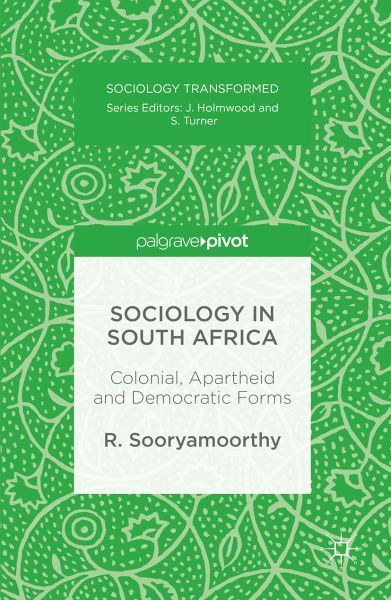
Sociology in South Africa (eBook, PDF)
Colonial, Apartheid and Democratic Forms
Versandkostenfrei!
Sofort per Download lieferbar
40,95 €
inkl. MwSt.
Weitere Ausgaben:

PAYBACK Punkte
20 °P sammeln!
This book is the first comprehensive account of the history and current state of South African sociology. Providing a holistic picture of the subject both as it is taught in universities and as a field of research, it reveals the trajectories of a discipline in a challenging socio-political context. With the support of historical and scientometric data, it demonstrates how the changing political situation, from colonialism to apartheid to democracy, has influenced the nature, direction and foci of sociological research in the country. The author shows how, during the apartheid era, sociology w...
This book is the first comprehensive account of the history and current state of South African sociology. Providing a holistic picture of the subject both as it is taught in universities and as a field of research, it reveals the trajectories of a discipline in a challenging socio-political context. With the support of historical and scientometric data, it demonstrates how the changing political situation, from colonialism to apartheid to democracy, has influenced the nature, direction and foci of sociological research in the country. The author shows how, during the apartheid era, sociology was professionally fragmented and divided along language and race lines. It was, however, able to flourish with the advent of democracy in 1994 and has become a unique academic movement. This insightful work will appeal to students and scholars of the social sciences, and all those interested in the history and society of South Africa.
Dieser Download kann aus rechtlichen Gründen nur mit Rechnungsadresse in A, B, BG, CY, CZ, D, DK, EW, E, FIN, F, GR, HR, H, IRL, I, LT, L, LR, M, NL, PL, P, R, S, SLO, SK ausgeliefert werden.












